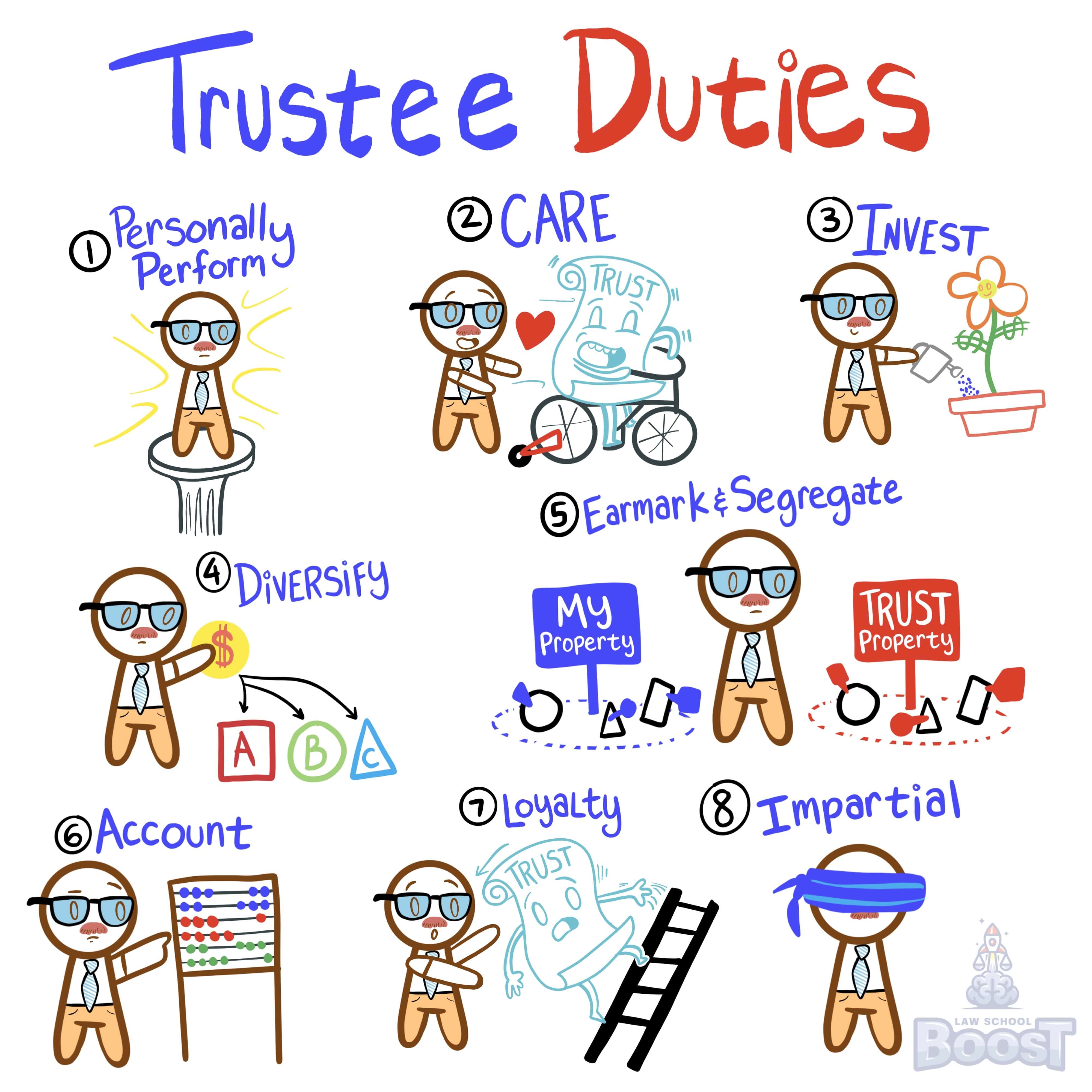🥺
Trusts • Trustee Powers & Duties
TRUSTS#041
Legal Definition
A trustee has a *fiduciary duty* of loyalty to the beneficiaries, which prevents the trustee from purchasing trust property for their own account or that of related persons. Before entering into a self-dealing transaction, a trustee must obtain court approval.
Plain English Explanation
As the name implies, a trustee has a lot of trust when it comes to handling the property of others. In fact, it would be super easy for a trustee to take advantage of their position in order to selfishly benefit while harming the interests of their beneficiaries. Because of this, the law has set up strict rules when it comes to "self-dealing," which occurs when someone performs a deal that benefits them personally. Even if the beneficiaries would otherwise support such a transaction, the trustee must first get court approval to make sure there are no sneaky shenanigans.
Hypothetical
Hypo 1: Bob is the trustee of Sam's trust. Among the trust property is a piece of land in the middle of the desert of Nevada that has a market value of $20,000. One day, while visiting the parcel of property, Bob trips over one of the largest gold nuggets he's ever seen. The next day, Bob purchases the parcel from the trust for $30,000. Sam is super happy with the deal, until he finds out about the gold. Result: Bob had a fiduciary duty to notify Sam about the gold and the increased value of the land. Additionally, Bob should have first received a court's approval before selling himself the parcel, even if he purchased it for $10,000 above the market rate.
Hypo 2: Bob is trustee of Sam's trust. The trust owns shares of stock in Tesla. Bob asks the court for approval to buy the Tesla shares for himself at market rate. The court approves the sale. Result: By getting court approval first, Bob fulfilled his duty of loyalty before engaging in self-dealing.
Hypo 3: Bob is trustee of Sam's trust. The trust owns a plot of land. Without court approval, Bob sells the land to his son at market rate. Result: Even though Bob sold the land for fair market value, he still violated his duty of loyalty by engaging in self-dealing without getting court approval first.
Hypo 2: Bob is trustee of Sam's trust. The trust owns shares of stock in Tesla. Bob asks the court for approval to buy the Tesla shares for himself at market rate. The court approves the sale. Result: By getting court approval first, Bob fulfilled his duty of loyalty before engaging in self-dealing.
Hypo 3: Bob is trustee of Sam's trust. The trust owns a plot of land. Without court approval, Bob sells the land to his son at market rate. Result: Even though Bob sold the land for fair market value, he still violated his duty of loyalty by engaging in self-dealing without getting court approval first.
Visual Aids

Related Concepts
In assessing a duty to invest what are state lists?
What are the trustee's duties?
What are the trustee's powers?
What is the duty of care?
What is the duty to account?
What is the duty to act impartially?
What is the duty to diversify?
What is the duty to earmark and segregate?
What is the duty to invest?
What is the duty to perform personally?
What is the Uniform Prudent Investor Act?


